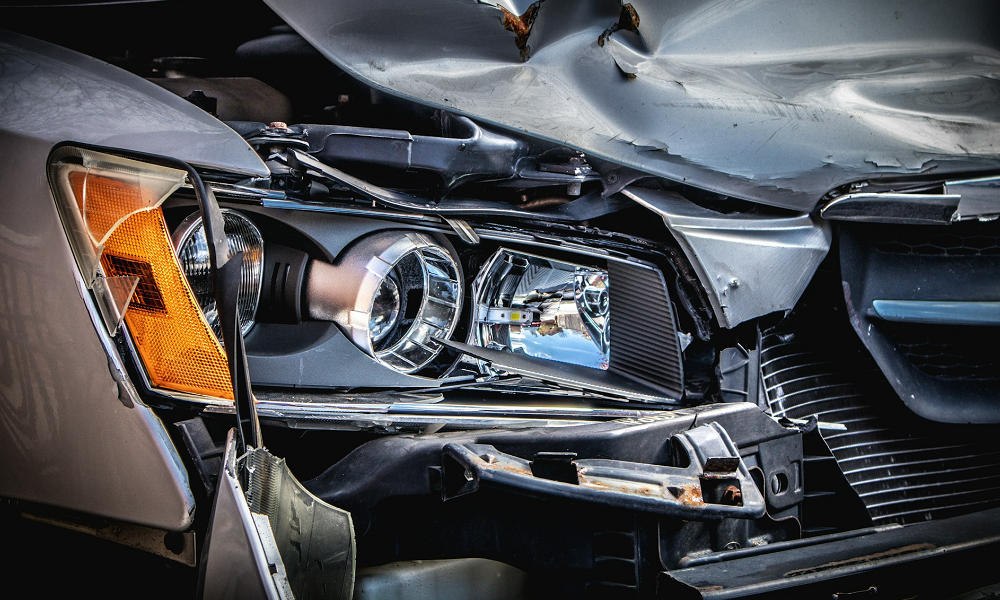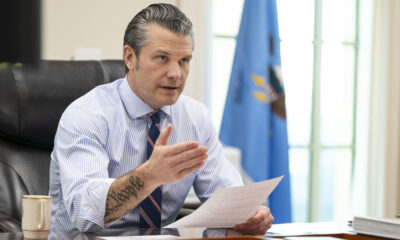Reviews
Can You Get Medical Bills Covered If the Other Driver Is Uninsured?

A car accident can cause more than physical pain; it can also create financial stress, especially if the at-fault driver has no insurance. Many people assume they must pay their medical bills alone in this situation, but that’s not always true. Even if the other driver is uninsured, several insurance options can still help cover medical costs.
Health insurance often pays for hospital visits, doctor care, and therapy after an accident. In addition, uninsured motorist coverage or medical payments coverage can fill the gaps that health insurance leaves behind. Each option works differently, but together they can reduce out-of-pocket expenses and protect personal finances.
This guide explains how to use available insurance to cover accident-related medical bills, what legal options exist if coverage falls short, and how to take practical steps toward financial recovery.
How to Get Medical Bills Covered After an Accident With an Uninsured Driver
Victims of accidents caused by uninsured drivers often face difficult financial situations. Several coverage options and legal actions can help pay for medical treatment and other losses after such crashes.
Uninsured Motorist Coverage and UM/UIM Claims
Uninsured Motorist (UM) coverage pays for injuries if the at-fault driver has no insurance. Underinsured Motorist (UIM) coverage applies when the other driver’s policy limits are too low to cover all expenses. Both types of coverage are part of many auto insurance policies.
A driver can file a UM or UIM claim through their own insurer. This process allows recovery for medical bills, lost wages, and pain and suffering. The insurer reviews the accident report, medical records, and proof of damages before approving payment.
Policyholders should check their coverage limits and exclusions. An experienced attorney can help guarantee the insurer pays a fair amount and handles the claim properly. For example, an experienced Chicago car accident lawyer can manage negotiations and protect the injured person’s rights during the claims process.
Personal Injury Protection and Medical Payments Coverage
Personal Injury Protection (PIP) and Medical Payments (MedPay) coverage can also pay medical bills after an accident with an uninsured driver. These coverages apply regardless of fault and can cover hospital visits, rehabilitation, and other necessary care.
PIP often includes compensation for lost income and basic services, while MedPay focuses on direct medical costs. The available amount depends on the policy’s limits. Some states require PIP, while others list it as optional coverage.
Claimants must submit medical records and bills to their insurer promptly. Delays or incomplete documentation can slow payment. A lawyer familiar with local insurance rules can help organize paperwork and meet deadlines to prevent claim denials.
Using Health Insurance for Accident-Related Medical Expenses
If no auto coverage applies, health insurance can cover medical treatment after an uninsured driver accident. Doctors and hospitals may bill the patient’s health insurer once it is clear that no auto policy will pay.
Patients may still face deductibles, copays, or out-of-network costs. Keeping detailed records of all expenses helps later if reimbursement becomes available through a settlement or court award.
Health insurers sometimes seek repayment from any future recovery through a process called subrogation. Legal counsel can review policy language and negotiate repayment terms to protect the injured person’s net recovery.
Filing a Lawsuit Against the At-Fault Uninsured Driver
If insurance options do not cover all losses, an injured person can file a lawsuit against the uninsured driver. The goal is to recover damages for medical bills, pain, and other losses.
However, many uninsured drivers lack assets to pay judgments. Before filing, an attorney typically investigates the driver’s financial situation to confirm whether recovery is realistic.
A skilled personal injury lawyer can file the case, gather evidence, and represent the victim in court. Firms that focus on car accident cases often handle these claims on a contingency basis, meaning clients pay only if the case succeeds. Legal action can also motivate settlement discussions that lead to faster payment of medical expenses.
Additional Insurance and Legal Considerations
Drivers often face more than just medical costs after an accident with an uninsured motorist. Vehicle repairs, documentation, and state-specific insurance rules also affect how much compensation they may receive and how quickly claims move forward.
Collision Coverage and Property Damage Claims
Collision coverage can help pay for repairs or replacement of a damaged vehicle regardless of who caused the crash. This coverage applies after the policyholder pays their deductible. It often serves as a backup if the other driver lacks insurance or cannot pay for property damage.
Uninsured Motorist Property Damage (UMPD) coverage may also help. It can cover vehicle damage caused by an uninsured driver, though coverage limits and deductibles vary by state and policy. Some states require this coverage, while others make it optional.
Drivers should review their auto insurance declarations page to confirm whether they have property damage coverage or UMPD. In some cases, an umbrella policy can extend protection beyond standard limits. Reporting the incident quickly to the car insurance company helps start the claims process and document all repair costs.
Role of Police Reports and Documentation
A police report often plays a key role in uninsured driver claims. It provides an official record of the accident, including details about fault, vehicle damage, and any injuries. Insurers often use this report to verify claims and assess liability.
Accident victims should request a copy of the police report and keep it with other records such as photos, witness statements, and repair estimates. These documents support both insurance and legal claims.
If the uninsured driver disputes responsibility, the police report can help clarify facts. It may also strengthen a lawsuit or claim under uninsured motorist coverage. Accurate documentation helps prevent delays and disputes with the car insurance company.
Impact of State Laws and No-Fault Rules
Insurance rules differ across states, which affects how uninsured driver claims proceed. In no-fault states, each driver’s own insurance covers medical expenses and lost wages up to policy limits, regardless of fault. Property damage, however, may still require a separate claim.
In fault-based states, the at-fault driver’s insurance normally pays for damages. If that driver lacks coverage, the injured party must rely on their own collision or uninsured motorist coverage.
Some states set minimum coverage requirements or allow lawsuits for certain losses. Understanding local laws helps drivers decide whether additional coverage, such as UMPD or an umbrella policy, makes sense. Checking state insurance regulations before an accident can prevent unexpected financial gaps later.
Conclusion
Accidents with uninsured drivers can leave people unsure about how to handle medical bills. Health insurance can cover many of the immediate costs, but deductibles and co-pays still apply. Therefore, uninsured motorist coverage often plays an important role in filling financial gaps.
If health insurance and auto coverage do not cover all expenses, legal options may exist to recover remaining costs. In some cases, states also offer programs that help injured drivers pay for medical care.
Keeping careful records, seeking legal advice early, and understanding available coverage can help individuals manage expenses more effectively after an uninsured driver accident.

-

 Legal2 days ago
Legal2 days agoMichigan man JD Vance sentenced to 2 years for threatening Trump and JD Vance
-

 Politics3 days ago
Politics3 days agoU.S. to designate Maduro-linked Cartel de los Soles as terrorist organization
-

 World6 days ago
World6 days agoU.S. begins Operation Southern Spear against “narco-terrorists” in the Western Hemisphere
-

 Health3 days ago
Health3 days agoCambodia reports fatal H5N1 bird flu case in 22-year-old man
-

 Legal6 days ago
Legal6 days agoImprovised explosive device detonates outside Las Vegas restaurant; no injuries
-

 World1 week ago
World1 week agoNationwide power outage hits Dominican Republic
-

 Politics3 days ago
Politics3 days agoEpstein survivors release PSA calling on Congress to release all files
-

 Legal5 hours ago
Legal5 hours agoWoman in critical condition after being set on fire on Chicago train




